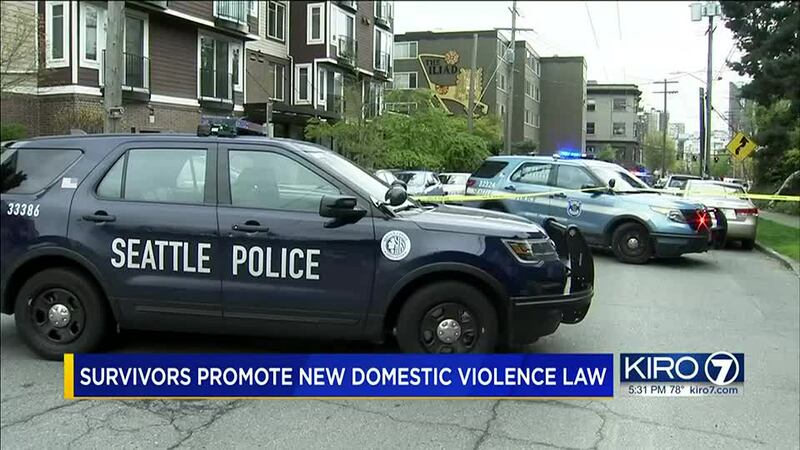Two Washington women are working to raise awareness about the prevalence of domestic violence in the state while pushing for additional protections.
Jazmin Peerson says she was stalked for years; forced to uproot her life multiple times.
“When you become a victim of stalking it’s a death sentence, especially physical stalking. It is a death sentence. You know that in order to survive a stalker you have to lose and give up certain parts of your life. That can be your address, your family, your friends. Your car. Your hobbies. Even your name,” says Peerson.
She says protection orders aren’t enough.
“I have been told many times by judges, police officers, prosecuting attorneys, victims of DV, politicians. That my protection order is a piece of paper and the duty is on me to keep myself safe,” says Peerson.
Women across the state and country, share in this dangerous reality. Data from the National Coalition Against Domestic Violence shows that one in four women have experienced domestic violence from a partner, along with one in nine men.
For state representative Lauren Davis, those statistics are heartbreaking and personal. She, too, is a survivor of domestic violence.
“He was suicidal. He was stalking me. He was escalating rapidly,” recalls Rep. Davis. “My DV advocate told me I was at high risk for DV homicide and unsafe to remain at home.”
She shared her story with fellow lawmakers this session and co-sponsored House Bill 17-15. A measure meant to improve domestic violence protections for victims.
“We have no statewide strategic plan related to DV. We have no surveillance data on the prevalence of domestic violence in Washington. We have no goals that say, we know we intend to reduce DV homicide by X percent by x date,” says Rep. Davis.
With HB 17-15, several changes will be amended to current laws, including changes to protection orders, no-contact orders, the surrender of firearms, and confidentiality programs. It also creates access to specialized attorneys for low-income victims. HB 17-15 also implements the statewide use of electronic monitoring systems, which alert victims when their abuser breaks a court order and is nearby.
“I would not be having this conversation with you right now if not for that technology, if not for the fact that my phone would go berserk in this moment if my perpetrator were to come near us,” says Rep Davis.
She says that one of the other most important components of the bill is training for judges and police; teaching them to better identify ‘lethality factors’ in domestic violence cases.
“It’s not necessarily just black eyes and broken bones. It’s about obsession. It’s about stalking.” Says Davis. “Does he have firearms? This whole other litany of issues that are not necessarily criminal elements on their own, but they create an incredibly dangerous cocktail for a survivor. And so that training is really important.”
HB 17-15 passed with bipartisan support. It’s not perfect, says Rep. Davis, but necessary. Peerson agrees.
“People genuinely are going to be alive and living. Not being a recluse anymore. Which is just amazing,” says Peerson. “I have been given a second chance at life for sure.”
Both Peerson and Rep. Davis say there is more work to do; vowing to remain vocal advocates in Washington.
©2023 Cox Media Group








